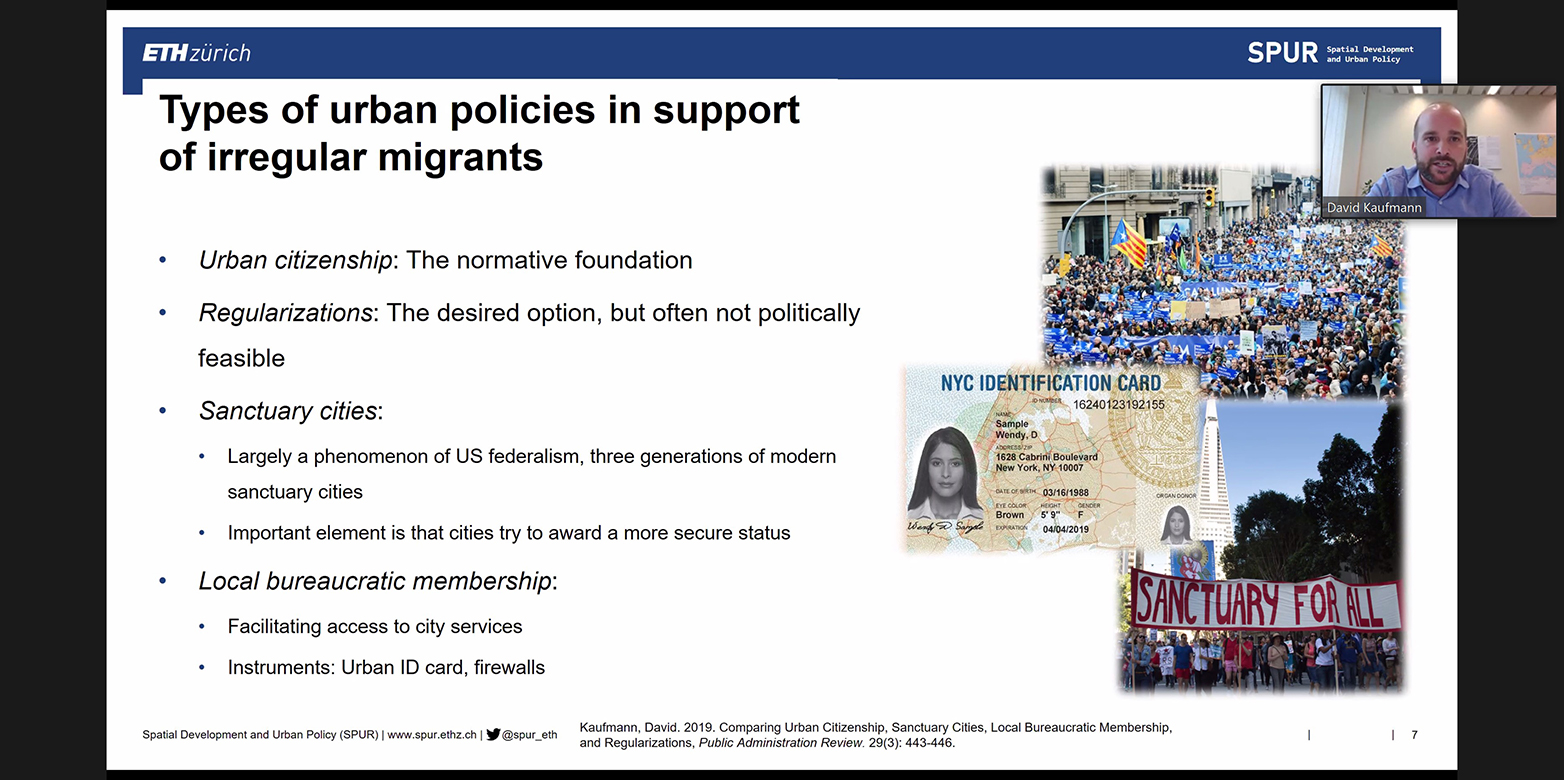Sanctuary Cities in Europe? Urban Policies in Support of Irregular Migrants in Europe
When dealing with the challenge of irregular migrants there is a wide range of cities that take a different approach of treating them in comparison to their respective national state. While there is plenty of research examining urban areas in the US and the phenomenon of sanctuary cities, little is known about European cities and policy approaches regarding this issue. As deputy director of the Institute for Spatial and Landscape Development at ETH Zurich, Prof. external page David Kaufmann is an expert in Urban Policy and provided valuable insight in the landscape of European urban policies in support of irregular migrants.
by Karin Schatzmann & Stefano Amberg
A UN study from 2014 suggests that there are up to 40 million migrants living in irregular situations worldwide of which a majority resides in cities and urban areas. This puts different kinds of pressure on national as well as on local politics. Sometimes this results in disputes and urban disobedience against national immigration policies, the most well-known outcome being the evolution of sanctuary cities in the US. This idea resonates with many other cities around the globe as cities see themselves as viable alternatives for citizen membership for their residents. By looking at several cities one can differentiate between two different kinds of policies in support of irregular migrants:
- Policies that focus on giving immigrants a more secure status in their cities leading to outcomes like regularizations (which are often not politically feasible) or sanctuary cities.
- Policies that focus on local bureaucratic membership facilitating access to city services for migrants via tools like Urban ID cards.
Policies supporting irregular migrants in the 95 biggest European cities in OECD countries were investigated of which all have more than 350’000 inhabitants. A three-step method was used which included looking at documents, categorizing material followed by a validation of the deci-sion criteria by experts. The study found that, except for 27 cities, most European cities do not have policies to support irregular migrants. The policies found in these 27 cities can be divided into "status" and "service" policies. "Status" policies give irregular migrants a more secure status and "service" policies help them to access city services like legal counselling, health care or housing services. Madrid, Barcelona, and Amsterdam are among the 27 cities that have policies for irregular migrants, and they consider both status and service aspects.
- "Operation Papyrus" in Geneva
The City of Geneva is pursuing a regularization strategy. This strategy is often politically unfeasible, as the political interests of the canton and city are not identical. With the help of a vertical venue-shopping strategy, in which the matter was brought from the city level to the cantonal level, and thanks to the cooperation between NGOs and the canton, such a project could be implemented. This was only possible due to the facts that the city of Geneva makes up such a large part of the canton and that the canton and city have similar political interests regarding this issue.
- "Züri City Card" in Zurich
The city of Zurich would have liked to implement an irregular migrant's policy similar to the one implemented in the city of Geneva. However, since the canton of Zurich is much larger than the city and they have different political interests the canton has opposed a regularization strategy. Instead, through a horizontal venue-shopping strategy, they im-plemented a policy that focuses on local bureaucratic membership and facilitates access to urban services. A city ID card modelled on the existing New York City ID card has now been introduced through the city parliament. But still there are many uncertainties regarding the exact implementation.
Other cities in Switzerland, such as Bern or Lausanne, follow the example of Zurich because the cantons do not support the idea of an "Operation Papyrus" programme for the same reasons as in Zurich. Basel is more similar to Geneva, and there is some discussion about a regularization strategy.
In summary, there is still a lot to discover in this area and this initial investigation represents a snapshot of the current European situation. We want to thank Prof. Kaufmann for his insightful presentation at the ISTP regarding this burning topic and we want to wish him all the best for further research in this field!
To get a broadened sense of the ISTP and our topics of interest and past seminars visit our Colloquia page.
